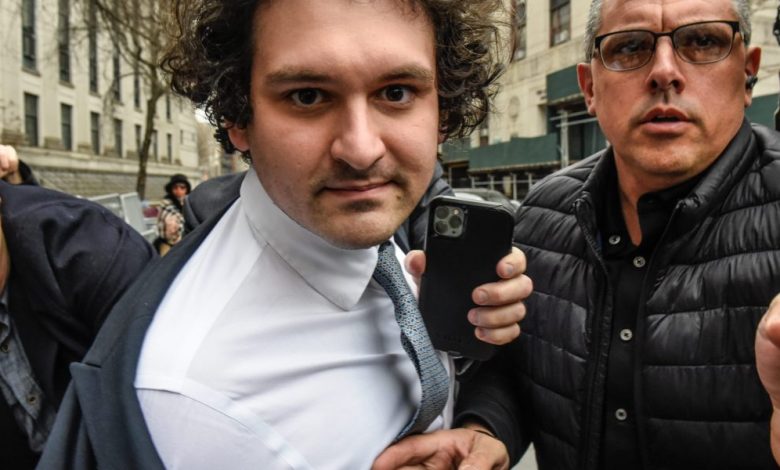Bankman-Fried is only allowed to use non-smartphones: prosecutors

Sam Bankman-Fried’s communication device will be a flip phone or other “non-smartphone” with no internet capabilities or access that is disabled while he is on bail, prosecutors said.
Restricting the FTX founder’s access to a device that gained popularity when he was about three years old is the latest development in a battle over his communications. His phone’s capabilities are limited to voice calls and SMS text messaging.
Bankman-Fried, 30, remains at large on $250 million bail but is confined to his parents’ home in California with a surveillance device around his ankle. In a letter to US District Judge Lewis Kaplan late Friday, prosecutors said the parties had agreed to changes to the terms of Bankman-Fried’s release.
Other restrictions include a ban on communicating with other current or former employees of FTX or the Alameda Research trading arm unless an attorney is present. He also cannot use encrypted or volatile calling or messaging apps, including Signal.
A spokesman for Bankman-Fried declined to comment on the agreement.
Kaplan has threatened to void Bankman-Fried’s bail package altogether and send him to jail ahead of his October trial if the Manhattan judge isn’t happy with the restrictions.
Bankman-Fried is accused of a massive fraud that led to the collapse of FTX in November. In extensive public statements, he has claimed responsibility for the debacle but said he did nothing illegal and pleaded not guilty.
The agreement came just days after former FTX chief technical officer Nishad Singh pleaded guilty to fraud against his old boss as part of a co-operation agreement with prosecutors. Gary Wang and Caroline Ellison pleaded guilty last year to charges related to their respective roles at the cryptocurrency exchange and Alameda, and are also collaborating with the US.
According to Friday’s letter, Bankman-Fried is barred from using a virtual private network, or VPN, on his phone that encrypts internet usage and disguises a user’s identity. Kaplan banned Bankman-Fried from using VPNs last month after his lawyers said he used one to watch football games.
The judge also raised concerns that the defendant could use apps like Signal to influence potential witnesses.
The agreement allows Bankman-Fried access to a laptop, but he must log in through a VPN, which allows access to websites in only two categories: those his attorneys deem necessary to prepare a defense; and websites for other purposes that the United States deems not to pose a risk.
Bankman-Fried’s second list of 23 personal use sites includes various news sites, Netflix, DoorDash, Uber Eats, Major League Baseball and the National Football League.
The deal also affects Bankman-Fried’s mother and father, who are required to submit affidavits detailing serial numbers and MAC addresses for their iPhones, Apple laptops and a desktop iMac, the filing says.
The case is US v. Bankman-Fried, 22-cr-673, US District Court, Southern District of New York (Manhattan).
Learn how to navigate and build trust in your organization with The Trust Factor, a weekly newsletter exploring what leaders need to succeed. Login here.



